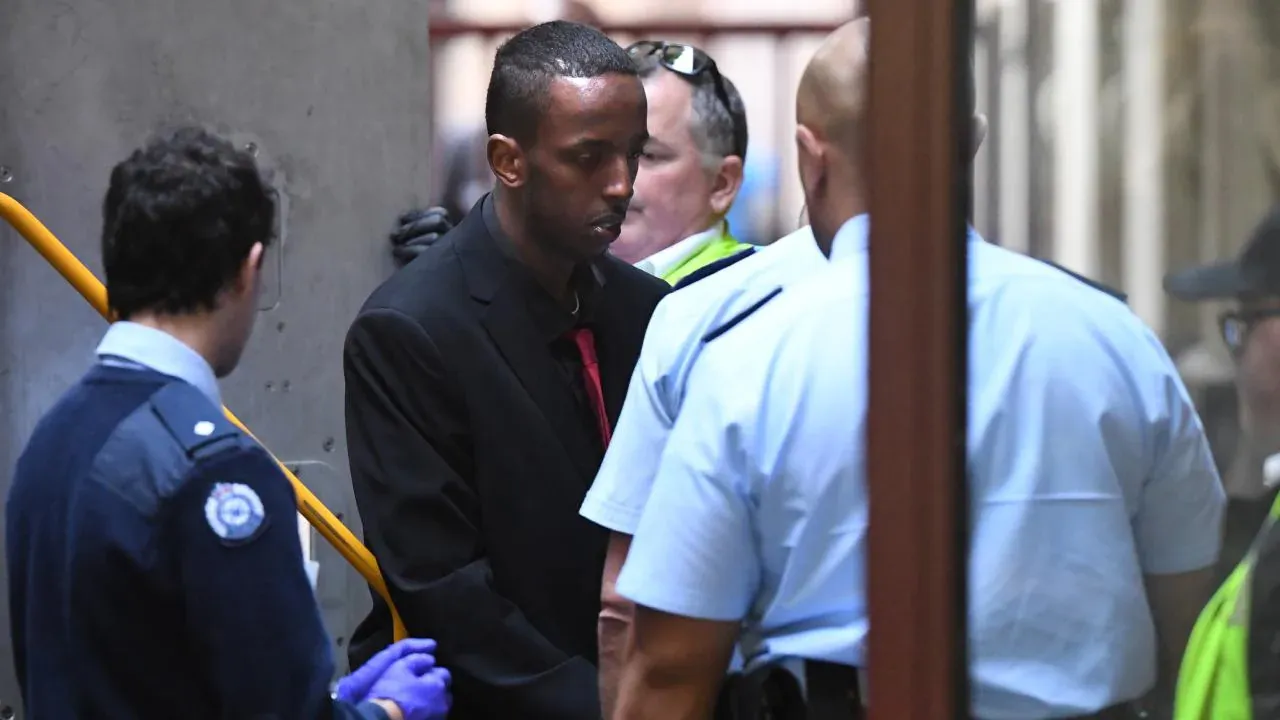Table of Contents
“Let the punishment fit the crime,” so the saying goes. In which case, you would be forgiven for thinking that planning to murder hundreds of people would surely merit a stiffer sentence than defrauding taxpayers.
Think again.
Ali Khalif Shire Ali was determined to fire a machine gun into thousands of New Year’s Eve celebrants in Melbourne’s Federation Square in 2017. The seriousness of his intent can be gauged from the fact that he attempted to procure an AK-47. If he hadn’t tried to buy one from undercover cops, who knows how many would have died?
For all that, though, Ali got just 7½ years.
Martin Douglas Aitchison, convicted for defrauding taxpayers, got eight years.
The sentence imposed on Ali Khalif Shire Ali last week by the Victorian Supreme Court for preparing that terrorist plan is egregiously lenient, so much so I believe it debases the integrity of the criminal justice system. He could have been given life in jail[…]
The sentencing judge noted that Ali “planned to commit an evil act, designed to cause the deaths of many innocent people”. The judge also observed that had Ali succeeded it would have resulted in a “terrifying and horrifying toll” and added that his plan was “a random and despicable act”.
Oh, but he said he’s sorry! And he’s totally not a jihadi, any more. Pinkie promise.
The fact an expression of remorse can reduce the severity of any penalty represents one of the key failings of the sentencing system. It is impossible to distinguish genuine remorse from a strategic statement designed to secure a lighter sentence.
Feeling remorseful for committing or attempting to commit such a heinous crime is hardly a commendation for which a would-be mass killer should be rewarded. Rather, this is the minimally decent response we can expect from a normal human being. Remorse at committing a terrible crime is no more commendable than driving on the left-hand side of the road or not being cruel to animals. It is expected behaviour. It is quite misguided that our worst criminals can receive significantly lower penalties merely for disavowing their crimes.
The court also took into consideration Ali’s youth. But is that a reasonable excuse? Martin Aitchison was 64 when he bilked the taxpayer. It can be argued that with age comes wisdom, and Aitchison might be expected to know better. But even at 21, I knew that planning to shoot hundreds of people was not acceptable.
More to the point, if prison is supposed to rehabilitate, as well as protect the community, older offenders like Aitchison have the lowest rate of offending – and the community almost certainly has nothing to fear from him on release.
But there are no proven rehabilitation programs for terrorists. Australians have good reason to be concerned when Ali is released and presumably closely monitored by the security services. Cameron Stewart revealed in this newspaper in 2014 that it can cost taxpayers up to $8m a year to have a single Australian jihadist monitored around the clock by security agencies.
In other words, the taxpayer will pay far more to rest assured that Ali won’t go straight back to his jihadin’ ways than they lost to Martin Aitchison’s fraud. It should also be borne in mind that Ali’s brother committed the infamous Bourke Street terror attack after his brother’s arrest. This is one lot who are certainly going to have to be monitored, for the safety of the Australian public, for years to come, at the cost of tens of millions.
Sentences for actual terrorist attacks seem to have been relatively severe in Australia. Where terrorists have been sentenced (they have a useful habit of being dispatched to Paradise in the progress of their crimes, after all), sentences have been from 20 years, to 42 years, to life.
So, how much of a “discount” should a terrorist get, if they’re arrested before they can carry out their heinous crimes?
Legal activists resist mandatory sentencing for such crimes, even though they’re happy to accept mandatory punishments for crimes like drink-driving.
And that is the reason no person who commits a terrorist act involving the loss of life should spend less than 30 years in prison. Offenders who are thwarted from committing such crimes, such as Ali, should receive no less than 20 years — the 10-year reduction being a concession for the fact that ultimately no lives were lost.
It is a failure of our governments that they resist such reform.
If you enjoyed this BFD article please consider sharing it with your friends.









